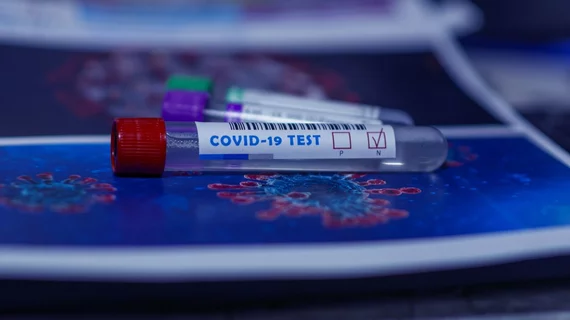How AI could be the key to beating the next COVID-19 variant
There are tens of billions of potential mutations in the SARS-CoV-2 spike protein, the part of the virus that allows it to penetrate host cells. So how can the global medical community prepare to respond to each one? A team of researchers from ETH Zurich in Basel, Switzerland, think artificial intelligence (AI) may be the answer.
The group's work, published in Cell, details how researchers trained machines to flag harmful potential variants that could arise in the future—and how that knowledge could help create next-generation vaccines and treatments.[1]
Creating 1 million spike protein variants to train AI
The team, led by Sai Reddy, generated a collection of one million laboratory-created, mutated spike protein variants. They did this while only producing a part of the spike protein and never producing or working with any live virus—this confirmed there would be no risk of a lab leak.
The group then used DNA sequencing and high-throughput experiments to determine how well the variants would be able to infect human cells, and whether they would be likely to escape antibodies from vaccinations and previous infections. This data was used to train machine learning models and test whether the resulting AI could accurately predict whether a new variant would be able to bind to ACE2 receptors—a necessary step to infect humans—and whether it would escape from neutralizing antibodies.
Using AI’s predictive power to develop new vaccines and treatments
By using AI to identify the most dangerous potential mutations—those which would result in a variant that would bind to ACE2 receptors and wouldn’t be neutralized by existing antibodies—researchers can get a critical head start on developing protective vaccines.
“Of course, no one knows which variant of SARS-CoV-2 will emerge next,” Reddy said in a statement about their work. “But what we can do is identify key mutations that may be present in future variants, and then work to develop vaccines in advance that provide a broader range of protection against these potential future variants."
In addition to vaccine development, the predictive power of AI models could also help scientists develop new antibody therapies that would be more likely to be effective against a variety of future variants.
“Machine learning could support antibody drug development by enabling researchers to identify which antibodies have the potential to be most effective against current and future variants,” Reddy said, noting that the research team is already working with biotechnology companies that are developing next-generation therapies.
